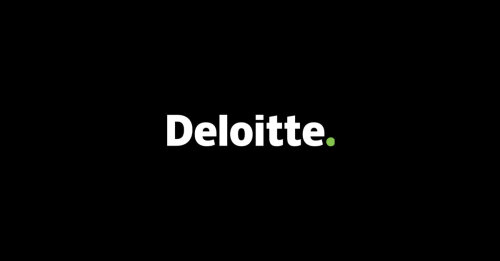Best Sports Law Lawyers in Norway
Share your needs with us, get contacted by law firms.
Free. Takes 2 min.
Or refine your search by selecting a city:
List of the best lawyers in Norway
About Sports Law in Norway
Sports Law in Norway encompasses a variety of legal disciplines applied to sporting contexts, ranging from contract law, employment law, and intellectual property, to doping control and athlete representation. Norway is known for its elaborate sports culture, and as such, sports law is an essential field that addresses the unique legal needs of athletes, clubs, associations, and related entities. The legal framework strives to ensure fair competition, manage disputes, and support the sports industry effectively.
Why You May Need a Lawyer
There are several situations in which individuals or organizations might require legal assistance in the realm of sports law in Norway:
- Contract Disputes: Athletes and sports organizations often need legal help with negotiation, interpretation, and enforcement of contracts.
- Intellectual Property: Protecting branding, sponsorship deals, and the commercial use of a sportsperson’s image is crucial.
- Doping Regulations: Legal representation may be necessary in cases of doping allegations or to navigate doping regulations.
- Disciplinary Actions: Athletes or clubs facing disciplinary action may need legal counsel to ensure fair treatment.
- Employment Issues: Employment law pertains to the contractual relationship between clubs and athletes, including issues like termination and rights.
- Sports Injuries: Legal advice may be needed for liability and compensation related to injuries sustained during sports activities.
Local Laws Overview
Key aspects of local laws relevant to Sports Law in Norway include:
- NIF Regulations: The Norwegian Olympic and Paralympic Committee and Confederation of Sports (NIF) oversees many sports regulations implemented by federations and clubs.
- Fair Competition: Norway follows international standards for competition, including regulations set by organizations like WADA for doping.
- Data Protection: The General Data Protection Regulation (GDPR) is applicable in Norway and impacts how personal data of athletes and fans is managed.
- Employment Contracts: Employment law under Norwegian jurisdiction applies to athlete contracts, focusing on equitable treatment and rights.
Frequently Asked Questions
What is the role of a sports lawyer?
A sports lawyer in Norway provides legal counsel on contracts, negotiations, dispute resolutions, doping allegations, and compliance with regulations applicable in the sports industry.
How does doping regulation work in Norway?
Doping regulations in Norway are in line with the World Anti-Doping Code. The Anti-Doping Norway is responsible for ensuring these regulations are adhered to, conducting tests, and managing violations.
What rights do athletes have under Norwegian law?
Athletes' rights in Norway include protections under employment law, access to safe sporting environments, and rights to fair representation and dispute resolution.
Can a sportsperson trademark their name in Norway?
Yes, athletes can trademark their name or brand, provided it meets the requirements under the Norwegian Industrial Property Office (NIPO) guidelines.
How are sports injuries compensated in Norway?
Compensation for sports injuries can be sought through insurance claims, and in some cases through litigation, where liability can be established due to negligence.
Is legal aid available for sports-related disputes?
Legal aid may be available in some sports-related disputes, particularly if they fall under the social welfare system, although private legal representation is often required.
What are the rules for minor athletes regarding contracts in Norway?
Contracts involving minor athletes require parental consent, and such agreements are subject to additional scrutiny to ensure they are in the best interest of the minor.
Who handles disciplinary actions in Norwegian sports?
Disciplinary actions in Norwegian sports are typically managed by the respective sports federation, with appeals possible through a designated appeal body like the NIF's adjudication committee.
How are broadcasting rights managed under Norwegian law?
Broadcasting rights in Norway are subject to licensing agreements between broadcasters and rights holders, ensuring compliance with intellectual property laws.
What can be done if an athlete wants to switch leagues?
Switching leagues may involve issues related to contract termination, transfer agreements, and adherence to league regulations, necessitating negotiation and possibly legal advice.
Additional Resources
- Norwegian Olympic and Paralympic Committee and Confederation of Sports (NIF): Governs sports activity regulations and standards.
- Anti-Doping Norway: Provides resources and information related to doping regulations and testing.
- Norwegian Industrial Property Office (NIPO): Manages trademark registrations and intellectual property issues.
- Norwegian Ministry of Culture and Equality: Oversees policies relating to sports, culture, and equality.
Next Steps
If you need legal assistance in Sports Law in Norway, consider the following steps:
- Identify Your Needs: Clearly define your legal issues or questions before consulting with a legal professional.
- Consult a Specialist: Engage with a lawyer specializing in Sports Law who understands both local laws and international norms.
- Gather Documentation: Prepare relevant documentation, such as contracts or correspondence, to facilitate an informed discussion.
- Explore Legal Aid: Check if you qualify for any legal aid programs, especially if the situation involves personal or employment rights issues.
- Contact Relevant Bodies: Reach out to bodies like the NIF or Anti-Doping Norway for additional guidance and support specific to your case.
Lawzana helps you find the best lawyers and law firms in Norway through a curated and pre-screened list of qualified legal professionals. Our platform offers rankings and detailed profiles of attorneys and law firms, allowing you to compare based on practice areas, including Sports Law, experience, and client feedback.
Each profile includes a description of the firm's areas of practice, client reviews, team members and partners, year of establishment, spoken languages, office locations, contact information, social media presence, and any published articles or resources. Most firms on our platform speak English and are experienced in both local and international legal matters.
Get a quote from top-rated law firms in Norway — quickly, securely, and without unnecessary hassle.
Disclaimer:
The information provided on this page is for general informational purposes only and does not constitute legal advice. While we strive to ensure the accuracy and relevance of the content, legal information may change over time, and interpretations of the law can vary. You should always consult with a qualified legal professional for advice specific to your situation.
We disclaim all liability for actions taken or not taken based on the content of this page. If you believe any information is incorrect or outdated, please contact us, and we will review and update it where appropriate.
Browse sports law law firms by city in Norway
Refine your search by selecting a city.









